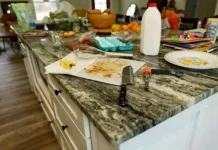Tiny houses are popular for a number of reasons: they are environmentally friendly, energy efficient and affordable. But if you’re considering building a tiny house, consider these issues carefully before you take the plunge.
It doesn’t grow with your family.

You may be single and carefree now, but what about ten years from now? Before you invest in a tiny house, think about your plans and consider if you might want to have children in the future.
Research property prices and zoning

Zoning laws in many places are not keeping pace with the tiny house movement, so you may want to consider renting rather than buying a plot. The American Tiny House Association is the best source for up-to-date zoning information.
Choose a convenient location

Once you’ve decided which lot you want to build on, consider whether there are services and jobs nearby. Where will you buy groceries? Is there a pharmacy nearby? Are you isolated from the rest of the world or do you easily visit friends and vice versa?
Be prepared for extreme weather conditions.

Small houses need to be sturdy, durable and well insulated to withstand high and low temperatures and adverse weather conditions. Fortunately, many engineers and architects are addressing this challenge and designing tiny houses that can withstand hurricanes.
Think about plumbing and waste

Tiny house owners are familiar with composting toilets, which can be built on lots without septic tanks. An alternative to composting toilets is incinerating toilets, which turn waste into ash. Both have advantages and disadvantages and it is important to consider them carefully.
Safety-oriented construction

Unlike traditional houses, small houses can be broken into, so it is not just a matter of locking doors and windows. To deter burglars, secure your home with wheel clamps and house locks, and install security cameras and GPS tracking devices.
Know where you can park.

Industry experts say there is no “clear answer” to where you can park your tiny house. However, there are organisations that can help you understand the current legislation.
Budget for maintenance and repairs

Initial construction costs for tiny houses may be low, but maintenance costs can be high. Plan for maintenance and repair costs, and be aware that tiny houses often require custom sizes and expertise, which can be costly.
Meeting storage needs

You can fit a lot of stuff in a small house. If it has lots of space-saving features and is designed with your stuff in mind, it’s great.
Insurance.

According to Policy Genius, tiny houses can’t be insured like traditional houses, but there are options such as mobile home insurance (for mobile homes) and manufactured home insurance (for fixed houses). Prices range from $400 to $1,500 per year, depending on the cost of the house, location, insurance chosen and deductible.









